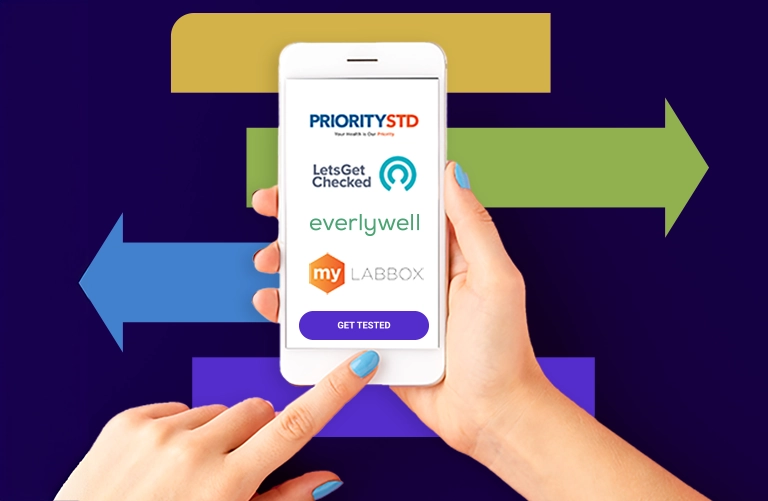Understanding Chlamydia: Symptoms, Testing, & Treatment
Understanding Chlamydia: Symptoms, Testing, & Treatment
Although chlamydia is the most commonly reported bacterial STD in the United States, most people don’t know they have it. Learn more about this STD, what symptoms it may cause, how it can affect the body, testing procedures, and available treatment options.
Get Tested for Chlamydia
ABOUT CHLAMYDIA
What Is Chlamydia And How Does It Affect Your Body?
ABOUT CHLAMYDIA
What Is Chlamydia And How Does It Affect Your Body?
Chlamydia is a bacterial infection that can spread easily among both men and women. The STD can be spread by having vaginal, anal, or oral sex with someone who has chlamydia, or it can be spread to a baby during childbirth if the pregnant person has chlamydia.
For most people, chlamydia won’t present any symptoms. If symptoms do develop, they will usually show up several weeks after having sex with the infected person. Symptoms of chlamydia include:
- Abnormal vaginal discharge
- Burning sensation when urinating
- Discharge from the penis
- Pain and swelling in one or both testicles
- Rectal pain, discharge and bleeding
- The presence of an unusual sore
- Smelly discharge
- Bleeding between periods
Whether or not you experience symptoms, chlamydia can still lead to serious health complications if left untreated. Women may develop pelvic inflammatory disease (PID) which can blockage of the fallopian tubes from scar tissue, ectopic pregnancy, infertility, and long-term pelvic and abdominal pain. While health complications are less common in men, they may still develop a fever and pain in the tubes attached to the testicles and eventually cause infertility. Leaving chlamydia untreated may also increase your chances of contracting HIV.
Above information source: Chlamydia – CDC Basic Fact Sheet
CHLAMYDIA TESTING INFORMATION
What To Know About Chlamydia Testing
Testing for chlamydia is simple. In a majority of cases, you will simply need to provide a urine sample. The lab will then analyze your sample to look for the presence of the infection.
In rare cases, a doctor may advise a swab test. For women, this involves taking a swab of the discharge from the cervix which can be performed at the same time as a pap test. For men, a slim swab is inserted into the end of the penis to get a sample from the urethra. If necessary, your physician may also take an anal swab.
Depending on the test used, the timeframe for results will vary. Typically, results will be returned 24 hours after the lab has analyzed your sample. If a rapid test was used in a physician’s office, results may be provided in as little as an hour and a half. Tests that analyze cell cultures can take about a week before results are returned.
Source: Cleveland Clinic, Chlamydia Test Results & Follow-Up
With the right treatment, chlamydia can be cured. As with any antibiotic medication, it’s important to take all of the medication provided as directed. Stopping medication too soon or not taking as instructed could result in the infection becoming more resistant to antibiotics, meaning it will be more difficult to treat.
You should refrain from any sexual activity until after treatment is completed. In general, this will be a seven-day window; do not have sex until at least seven days after taking a single-dose medication, or if on a seven-day antibiotic schedule, refrain from sex until all doses have been taken.
Even after treatment, it is still possible to get chlamydia again, so it’s important to practice safe sex. Repeat infections are also common, so you should plan to test again three months after completing treatment, even if your partner has also completed treatment.
- Anyone who is sexually active
- Sexually active women under 25 years old
- Gay and bisexual men
- Women 25 years or older who have new or multiple sex partners, or a partner with an STD
- Those who are pregnant
Source for all above: Chlamydia – CDC Basic Fact Sheet